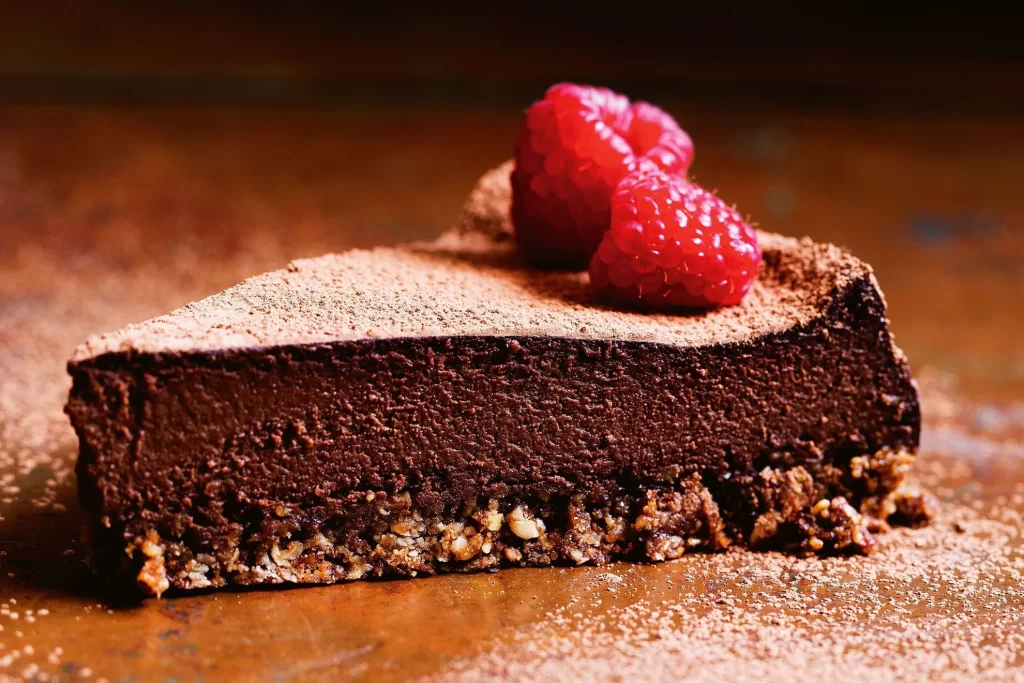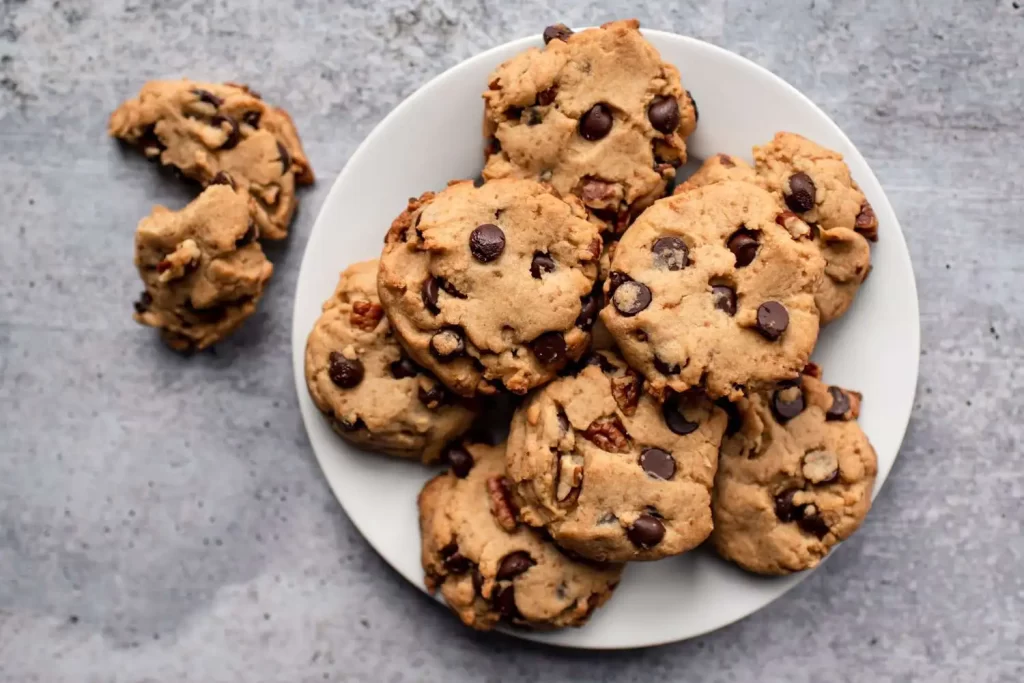Discover how vegan baking is taking over kitchens everywhere today and shows just how tasty it is to bake without the use of dairy products or eggs. This diet revolution is not only for vegans but it is for people seeking more healthy and nurturing cooking methods. Whether you are more into traditional lighter desserts and biscuits or elaborate pastries and dough products; vegan baking has something delectable to offer. Take control of the vegan baking planet and figure out how quick and satisfying it is to prepare something desirable without the need of animal products.
Table of Contents
ToggleUnderstanding the Basics of Vegan Baking
To summarize, vegan baking involves substituting animal-derived ingredients including eggs, butter, and milk, with plant-based equivalents. While each of the aforementioned ingredients has its own properties and importance in a recipe, it is critical to remember how vegan ingredients can be effectively swapped: eggs for flaxseeds, chia seeds, applesauce, mashed bananas, and commercial egg replacers; butter for plant-based oils or even avocado; milk – for almond, soy, oat, or coconut milk; honey or bee pollen, which can be easily replaced with vegan sweeteners – maple syrup, agave nectar, date syrup, etc.

Essential Ingredients and Tools for Vegan Baking
Before kickstarting your vegan baking journey, the pantry must be fully equipped. Plant-based milks are the first item on the essentials list. Different varieties of plant milks have a unique flavor and fat content used in varying quantities for different recipes. Flours are next, and whole wheat, almond, oat, and gluten-free flour blends are especially beneficial for vegan baking. Leaveners should be fresh, particularly baking powder and baking soda, for better results.
There are diverse types of sweeteners available; in addition to the traditional sugar, choose from coconut , agave syrup or nectar, and stevia. Use coconut oil, vegan margarine, and a vegetable-based alternative to butter such as shortening. Lastly, flaxseed meal and chia seeds are used for making “flax eggs” and “chia eggs”. Buying good-quality baking tools will make your vegan baking experience more pleasant. Get silicone baking mats, measuring tools, mixing bowls, and a decent collection of baking pans.
Popular Vegan Baking Recipes
- Vegan Chocolate Cake: This rich, moist cake uses almond milk and apple cider vinegar to create a dairy-free delight that rivals any traditional chocolate cake.
- Vegan Banana Bread: By using ripe mashed bananas and a touch of plant-based milk, you can create a moist, flavorful bread that’s perfect for breakfast or a snack.
- Vegan Blueberry Muffins: With the help of soy or almond milk and vegetable oil, these muffins are light, fluffy, and bursting with blueberries.
- Vegan Scones: Coconut oil and almond milk combine to create the perfect tender, crumbly scone that’s ideal with a cup of tea.
- Vegan Macarons: These delicate treats can be made using aquafaba (the liquid from canned chickpeas) instead of egg whites.
Tips and Tricks for Vegan Baking Success
- Experiment with Ingredients: Vegan baking often requires some experimentation to get things just right. Don’t be afraid to try different substitutes to see what works best for you.
- Follow Recipes Carefully: Vegan ingredients can react differently than their traditional counterparts, so it’s important to follow recipes closely until you’re comfortable making adjustments.
- Temperature Matters: Some plant-based fats melt at different temperatures, so pay close attention to baking temperatures and times.
The Benefits of Vegan Baking
Health and Nutrition: Vegan baked goods often contain less saturated fat and cholesterol than traditional recipes, making them a healthier choice overall. They can also be higher in fiber, especially when using whole grain flours and natural sweeteners.
Environmental Impact: Choosing plant-based ingredients helps reduce your carbon footprint. Dairy and egg production have much higher environmental impacts in terms of water use, greenhouse gases, and land use compared to plant-based alternatives.
Inclusivity: Vegan baking allows you to cater to friends and family who have dietary restrictions such as lactose intolerance, egg allergies, or wd bos lifestyles.
Expanding Your Vegan Baking Repertoire
As you become more comfortable with the basics of vegan baking, you can start to explore more complex recipes and techniques that showcase the versatility of vegan ingredients.
Advanced Vegan Baking Recipes
- Vegan Croissants: Achieving the buttery, flaky layers of a croissant without dairy is a challenging but rewarding task. Vegan butter and meticulous layering techniques can yield astonishing results.
- Vegan Pies: From savory pot pies to sweet fruit pies, the crust can be made flaky and delicious using solid plant-based fats like coconut oil or vegan shortening.
- Vegan Cheesecakes: Using soaked cashews or silken tofu, vegan cheesecakes offer a creamy, decadent dessert option that rivals traditional cheesecake in texture and taste.
- Vegan Tarts: With a vegan pastry crust and fillings made from fresh fruits or rich, dairy-free chocolate ganache, tarts are a perfect showcase for vegan baking.
Creative Substitutions and Techniques
- Aquafaba in Meringues: Aquafaba, the liquid from a can of chickpeas, can be whipped up like egg whites and used in recipes for meringues, mousses, and more.
- Vegan Buttermilk: Mixing plant milk with a little vinegar or lemon juice creates a perfect substitute for buttermilk in recipes that require a tangy, acidic component.
- Cashew Cream for Dairy: Soaked and blended cashews produce a rich cream that can be used in recipes calling for dairy cream, adding luxurious texture and flavor.

Enhancing Flavor and Texture in Vegan Baking
To ensure your vegan baked goods are as delicious as they are ethical, consider these tips for enhancing flavor and texture:
- Spices and Extracts: Use quality vanilla extract, spices, and citrus zests to enhance the flavors of your ingredients.
- Toast Nuts and Seeds: Toasting nuts and seeds before adding them to recipes brings out their oils and deepens their flavors, which can add a new dimension to your baked goods.
- High-Quality Ingredients: Using high-quality, fresh ingredients can make a significant difference in the outcome of your baking, particularly when it comes to items like chocolate, vanilla, and fresh fruit.
Educational Resources for Vegan Bakers
For those looking to deepen their understanding of vegan baking, several resources can help:
- Cookbooks and Blogs: There are many cookbooks and online blogs dedicated to vegan baking. These can provide tried and tested recipes, as well as troubleshooting tips.
- Baking Classes: Some culinary schools and community centers offer classes specifically in vegan baking, which can provide hands-on learning and expert advice.
- Online Forums and Social Media: Platforms like Reddit, Instagram, and Facebook have communities where vegan bakers share their experiences, swap recipes, and offer support.
Vegan baking is the highest form of this kind of art, as it aims to maintain health, protect ethics, and save the planet. During our journey to the world of veganism in the form of bakery, we will enhance our culinary skills and help create a kinder, more sustainable future. Let your creativity be driven by difficulties, finding joy in the challenges vegan baking offers you, and reaping the fruits of your labor, which will enrich your kitchen and life.
Vegan baking is changing people’s ideas about the meaning of baking. This baking type is a challenge for creativity and creativity itself. It does not exclude classic cooking but adds a new approach to it. Therefore, whether you are a beginner or professional chef, using vegan baking in your kitchen will truly be a revelation that will bring you additional culinary satisfaction.
Also read: Tunnel Vision: Its Impact and Overcoming Limitations 2024



